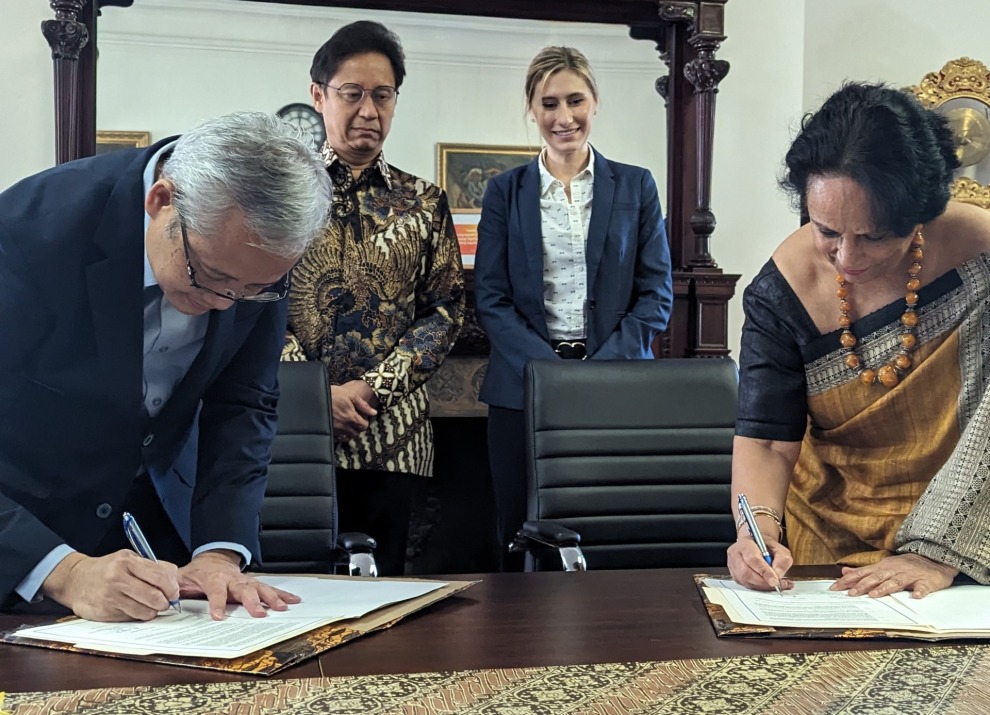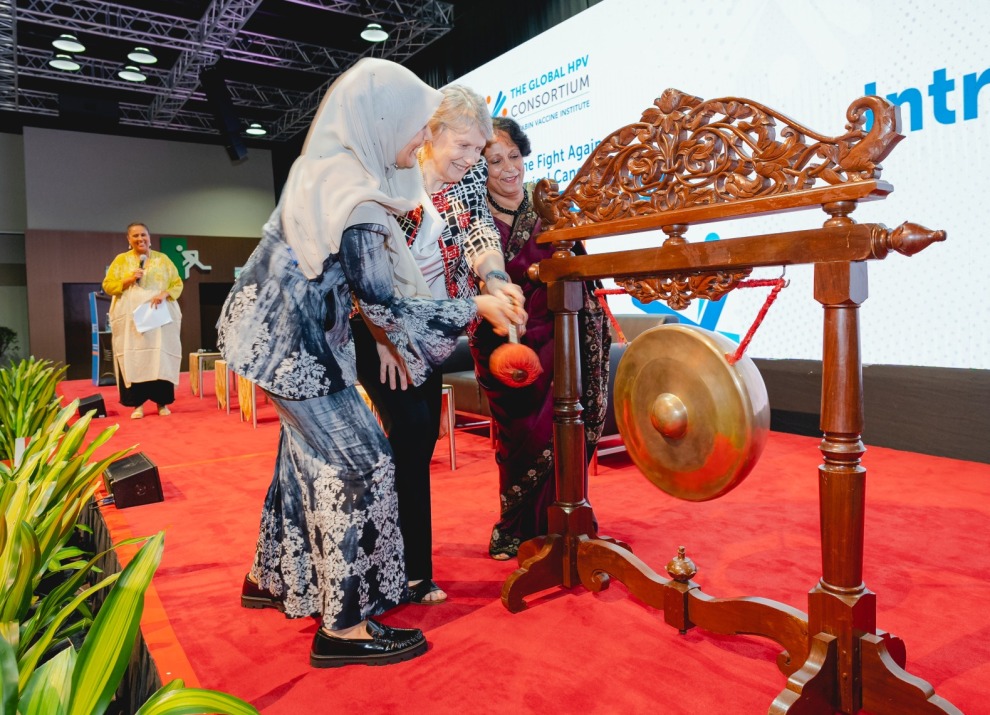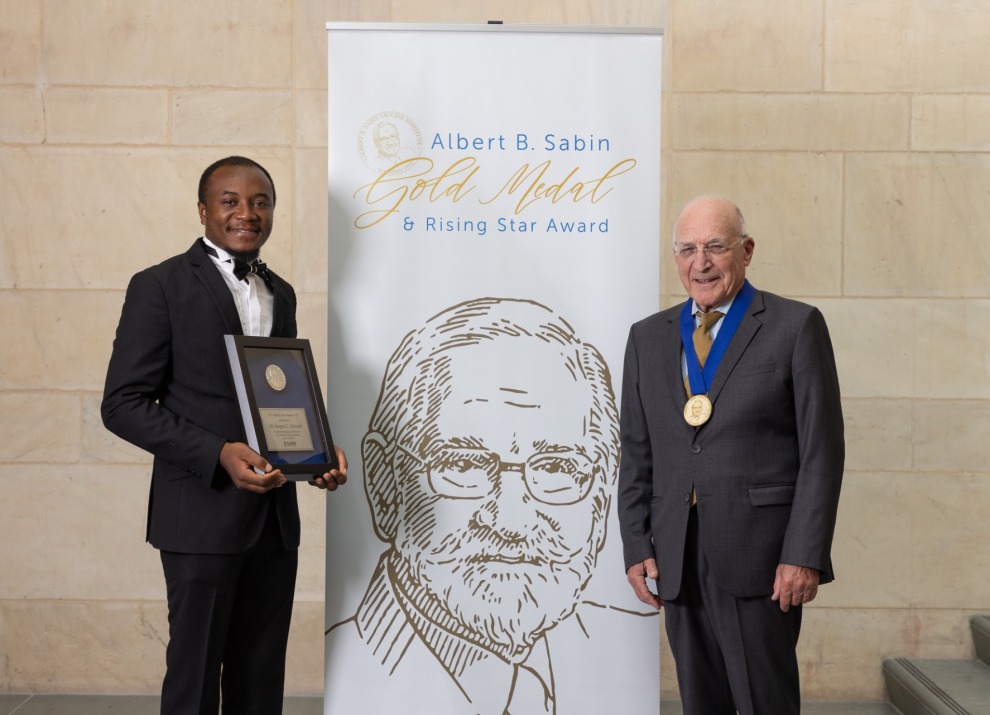Sabin Vaccine Institute Statement on the Passing of Sabin Founder and Trustee Philip Russell


Major General (Ret) Philip King Russell, physician, scientist, soldier, family man, and global health advocate who dedicated his life to protecting humans from infectious disease through vaccines, died peacefully on January 21, 2021, just a few months after being diagnosed with cancer and one week before his 89th birthday. Phil’s proudest achievement and greatest joy was his large and ever-expanding family, and after living in the Washington, DC area for more than 40 years, Phil and his wife of 65 years, Constance Rice Russell, moved to the Denver area in 2014 to be closer to their family. Phil passed his final days with Connie and his three children (Katherine Russell Kingsbery, Ellen King Russell Herting and Richard Webster Russell) by his side. He is also survived by six grandchildren, Russell Everette Kingsbery, Kelsey Louise Kingsbery, William Webster Kingsbery, Avery Grace Russell, Peyton Christine Russell, Taylor King Russell and three great grandchildren. Because of the restrictions imposed by the pandemic, there will be a private service with full military honors at Fort Logan, Colorado.
Early in his career with the U.S. Army, Phil’s work to protect soldiers from infectious diseases took him to many poor countries – Pakistan, Thailand, and Vietnam. In these settings Phil witnessed firsthand how living conditions – the lack of clean water, poor sanitation, and the absence of essential medical services – fostered the spread of infectious diseases that led to disability and early death. From this experience, Phil applied his bedrock of integrity and scientific expertise to the quest of protecting people everywhere from infectious diseases and their consequences.
Among his many professional achievements, Phil was the founding President of the Sabin Vaccine Institute in 1993 and continued serving with impeccable integrity on the Board of Trustees in various roles, including as Board Chair from 2007 to 2008, until his retirement in December 2019. At the age of 84, when most people would be decreasing their workload, Phil took on increased responsibilities and played an integral role in Sabin’s recent successes and chaired the R&D Committee from 2018 to 2019. Phil was Special Advisor to the Sabin Board at the time of his death. The Board and staff of the Institute mourn the loss of Phil – their steadfast leader for the past 28 years. He never missed a Board meeting and was always willing to work with the Sabin staff to tackle the next challenge. Available for counsel and help, Phil was also a mentor and friend who will be deeply missed by the Sabin team. And even in his passing, Phil’s commitment to protecting life from infectious disease through vaccines continued as he instructed that in lieu of flowers that donations be made to Sabin in his honor.
Born in Syracuse, NY, on January 26, 1932, Phil earned his medical degree from the University of Rochester School of Medicine and Dentistry in 1958. Phil had a 30-year career in the U.S. Army Medical Corps and received Legion of Merit and the Distinguished Service Medal before retiring in 1990 as Commandant of the United States Army Medical Research and Development Command as a Major General. Pursuing a career in infectious disease and tropical medicine research, Phil assumed a succession of research assignments at the Walter Reed Army Institute of Research and its laboratories in various low-income countries. Phil then became Commandant of the Walter Reed Army Institute of Research. He conducted laboratory and clinical research on a variety of viral and parasitic diseases, including dengue, malaria, hepatitis, and respiratory viruses. With more than 100 authored or co-authored research publications, Phil contributed to the successful development of several vaccines important to the military and public health, including those of adenovirus, meningitis, and hepatitis A and B. During his military career, Phil was an active member of the American Society of Tropical Medicine and Hygiene, serving as its president in 1983.
After retiring from military service, Phil joined Johns Hopkins School of Hygiene and Public Health as professor of international health and began his 30-years of service to non-profit organizations focused on developing vaccines to combat infectious diseases. In addition to Sabin, Phil was a founding member of the Board of the International AIDS Vaccine Initiative, joining other likeminded scientists to support AIDS research when financial support was withheld due to political pressure. He also served on the Boards of Directors of the International Vaccine Institute and the Aeras Global TB Vaccine Foundation and was instrumental in creating the Malaria Vaccine Initiative. Phil served as an advisor to the Bill and Melinda Gates Foundation, as well as numerous advisory boards of national and international agencies, including the Centers for Disease Control, National Institutes of Health, the Institute of Medicine, and the World Health Organization where he was special advisor to the Children’s Vaccine Initiative.
Perhaps the one skill Phil never mastered was retirement. Following the anthrax attacks in 2001, Phil was tapped by Health and Human Services (HHS) Secretary Tommy Thompson to join the Office of Public Health Preparedness (now the Office of the Assistant Secretary for Preparedness and Response) along with his long-time colleague and smallpox eradicator, DA Henderson, to oversee HHS’s anthrax and smallpox vaccine development efforts. The success of this work inspired the creation of the Biomedical Advanced Research and Development Authority and to the establishment of the U.S. Strategic National Stockpile.
During the last year of his life, Phil witnessed what he knew would happen one day – a new virus that would spread around the globe faster than imaginable and taking human life – and among his many goals, he worked his entire 60-year career to prepare the U.S. and the world for that day. The lessons that Phil taught the U.S. government – in the Army’s Medical R&D Command, the HHS’s Office of Public Health Preparedness and his many contributions to vaccine science – are the ones that were central to the design and operational philosophy behind Operation Warp Speed’s vaccine development efforts: couple the best science, people and management, pay attention to every detail, don’t let bureaucracy slow you down, and take calculated risks.
As recently as two weeks ago, Phil joined informal group Zooms with colleagues to discuss the pandemic, the science of the new vaccines, and the challenges of getting the vaccine into arms, especially in places with limited vaccine delivery infrastructure. These were the issues that were the focus of Phil’s work with Sabin for nearly three decades and are the same ones that are embodied in Sabin’s work today and will continue to be our work in Phil’s honor.
Sincerely,
|
Regina Rabinovich
Chair, Board of Trustees |
Brian Davis
COO |
|
Amy Finan
CEO |
Bruce Gellin
President, Global Immunization |
|
Axel Hoos
Immediate Past Chair |
Peter Thoren
Vice Chair |







